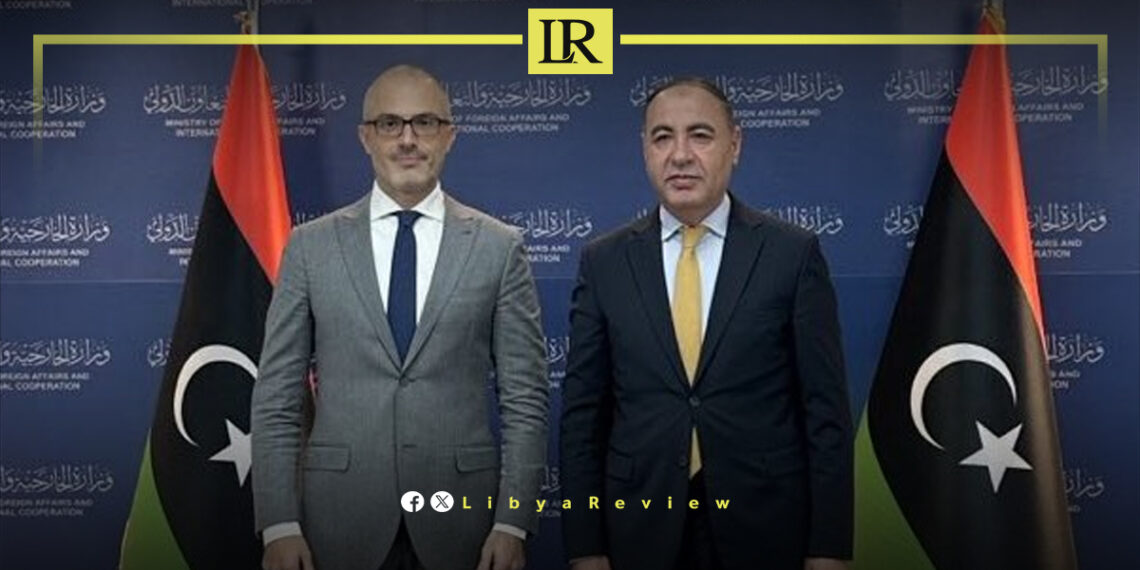The European Union has reiterated its call for the withdrawal of foreign fighters and mercenaries from Libya, emphasizing their removal as a critical step toward ensuring the country’s stability and sovereignty. This stance was highlighted during a productive meeting in Tripoli between the EU delegation and Libya’s Acting Foreign Minister, H.E. Eltaher Elbahour.
The meeting showcased the EU’s commitment to fostering peace and economic development in Libya while addressing key challenges that continue to hinder progress.
Economic and Security Cooperation
The EU underscored its support for fair and transparent resource allocation through its involvement with Libya’s Economic Working Group. This initiative aims to ensure that Libya’s wealth benefits all its citizens and contributes to sustainable growth.
Discussions also touched on the ongoing dialogue between the EU and Libya’s Joint Military Committee 5+5, which plays a pivotal role in maintaining the fragile ceasefire and addressing security concerns. The EU stressed its firm stance on the withdrawal of foreign fighters and mercenaries, a key demand outlined in international agreements.
Impact of Regional Developments
Acknowledging the broader regional implications, the EU expressed concern over the impact of developments in Syria on Libya’s stability. The presence of foreign forces in Libya has not only escalated tensions but also impeded the country’s ability to chart its independent political course. The EU reiterated its “convinced support” for the removal of these elements to foster lasting peace.
Enhanced Cooperation and Border Security
Both parties agreed to enhance consultations to ensure that EU programs align with Libya’s national priorities. Among these priorities is the need for unified efforts to improve the control of Libya’s southern border, which has long been a conduit for illegal migration, trafficking, and smuggling. Strengthening border management is seen as vital to stabilizing the region and curbing transnational threats.
Support for the Political Process
The EU reaffirmed its full support for the United Nations Support Mission in Libya (UNSMIL), which is working to reignite Libya’s stalled political process. The EU emphasized the importance of resuming dialogue among Libyan stakeholders to establish a roadmap for national elections and a unified government.
A Path Toward Stability
This meeting reinforced the shared vision between the EU and Libya for a peaceful, stable, and prosperous future. By addressing economic disparities, enhancing border security, and ensuring the withdrawal of foreign fighters, the EU and Libya aim to create the foundations for long-term stability and sovereignty.
As the EU continues its dialogue with Libyan authorities, it remains committed to supporting the country in overcoming its challenges and achieving unity.


